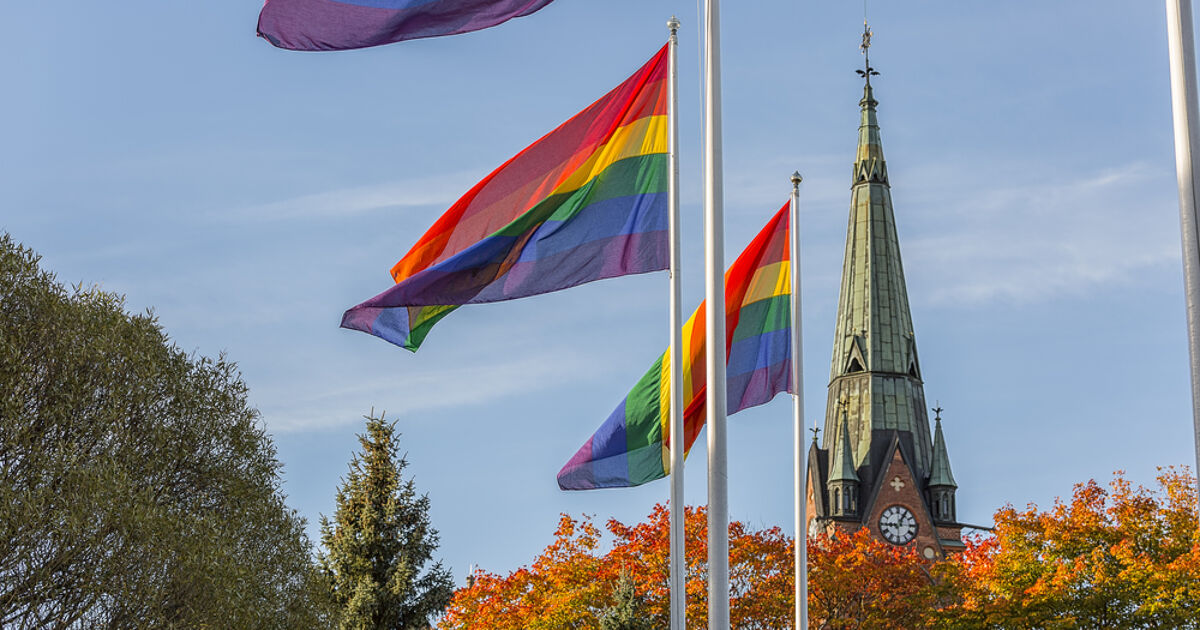The Church of Norway apologized on Thursday to the country’s LGBTQ+ community for decades of discrimination, Reuters reports.
Presiding Bishop Olav Fykse Tveit acknowledged the church’s regret at the London Pub in Oslo, the site of a shooting during Pride celebrations in June 2022. Two people died in the homophobic attack. Tveit said the Evangelical Lutheran church, the largest denomination in Norway, had caused harm to gay people and thanked those who campaigned for change.
“The church in Norway has imposed shame, great harm, and pain,” the bishop said. “This should not have happened, and that is why I apologize today.”
A similar acknowledgment by the church’s bishops in 2022 addressed past discrimination, including a description of gay people by the Norwegian Bishops’ Conference in the 1950s as a “social danger of global dimensions.” Seventy years later, same-sex couples can marry in the Church of Norway.
A service was scheduled to follow the bishop’s remarks at the Oslo Cathedral on Thursday evening.
The church’s acknowledgement of institutional discrimination follows several similar apologies in recent years by other Christian denominations.
In 2023, the Church of England apologized for its “shameful” treatment of the LGBTQ+ community. Representing 85 million Anglicans worldwide, the Protestant church expressed regret for past rejections and exclusions.
“We want to apologize for the ways in which the Church of England has treated LGBTQI+ people—both those who worship in our churches and those who do not,” the bishops said in a statement. “For the times we have rejected or excluded you, and those you love, we are deeply sorry. The occasions on which you have received a hostile and homophobic response in our churches are shameful, and for this we repent.”
However, at the same time, bishops have refused to allow same-sex marriages in Anglican churches. Just this week, they turned back plans to officiate discreet blessings for same-sex couples, although such blessings can take place within routine church services.
In August, the United Church of Canada, the largest Protestant denomination in the country, acknowledged harms to the Two-Spirit and LGBTQ+ communities in Canada.
“We have failed to celebrate and delight in all of your beautiful Creation. We have wounded people instead of seeking wholeness. We are sorry,” said Rev. Michael Blair, the church’s General Secretary, in a message accompanying the official apology.
“We, The United Church of Canada, express our deepest apologies to all those who have experienced homophobia, transphobia, and biphobia within The United Church of Canada,” the statement read in part.
These institutional expressions of regret have been accompanied by recent individual apologies by church leaders, many within the Catholic Church.
In January, Catholic Cardinal Wilton Gregory of Washington, D.C., issued a personal apology from the pulpit.
“I apologize for my own failure to emulate Christ’s compassion,” he said. “The way that we have treated our LGBTQ brothers and sisters has brought them tears, and to many of us, disgrace.”
“I apologize from the heart for the hurt that has resulted in the loss of so many of our family members who belong to God no less than I do,” he added.
Last year, a Catholic bishop in Germany apologized for the church’s mistreatment of LGBTQ+ people, encouraging congregants to be more supportive of equality and inclusion.
“We want to be a diocese that values diversity,” Bishop Stephan Ackermann said during what he called a “public confession.”
The following month, Archbishop Heiner Koch of Berlin also apologized, labeling homophobia an “unholy line of tradition.”
In 2016, Pope Francis stated during a conversation with reporters aboard the papal plane that Christians owe apologies to gay people and others who have been offended or exploited by the church.
“I repeat what the Catechism of the Catholic Church says: that they must not be discriminated against, that they must be respected and accompanied pastorally,” Francis said. “The Church must ask forgiveness for not behaving many times—when I say the Church, I mean Christians! The Church is holy, we are sinners!”
A formal apology from the Catholic Church has not yet been issued.
https://www.lgbtqnation.com/2025/10/church-of-norway-apologizes-for-how-it-treated-lgbtq-people/
